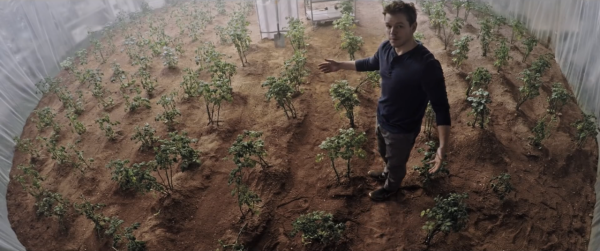August 22, 2017
The Experimental Life: Applying the scientific method to your job hunt
Posted by AGU Career Center
Life is a series of experiments, and I wouldn’t have it any other way. However, I am surprised how many of my fellow scientists fail to understand the utility of experimentation outside of the lab.
When I was three, my mother left me with my grandmother, so that she could run to the store for a few things. When my mom returned, she asked my grandmother why my face was so dirty. My grandmother told her, “He just ate a handful of dirt. He didn’t like it, but I think he learned something.” …and so, it started.
Today, I work with Earth and space scientists that are looking for employment. Almost every encounter starts with the lament, “I must have sent out a thousand resumes to employers, but I haven’t heard anything back.” In the field of career counseling, we refer to this strategy, or lack thereof, as “Spray and Pray.” It never works, but people generally need to try it for themselves before they will listen to something different.
One of the happiest days of my life was when I learned about the scientific method. My 5th grade teacher, Mrs. Lang, presented a simplified version of the method in class and asked us to form our own hypotheses to test. Until that time, school had been about repeating the steps and learning the concepts presented in my textbooks—a rote process. I loved the freedom that experimentation gave me to explore new topics. Having a methodology also provided a framework for problem solving. It was something that my grandmother had unsuccessfully tried to instill into my consciousness years before. Sometimes it takes a while for people to get the picture, and I must admit that it was no different for me.

In The Martian, to use an example from pop culture, Matt Damon (or was it Mark Watney?) almost died when he was left behind on Mars with limited oxygen and food. It wasn’t until he turned to the scientific method that he was able to engineer his way back from oblivion.
These days when I am working with job seekers, I urge them to apply their scientific expertise to the problem at hand, even when it is outside of the lab. After all, scientists understand that doing the same thing over and over again and expecting different results is insane.
In the mysterious case of too many resumes, it becomes obvious that something is wrong with the resume, because that is the only thing that the employers have seen from the candidate. Tailoring the applicant’s resume to target the employer’s requests generally changes the situation quickly.
Experimenting in life can lead to many new insights, and eating dirt is the best way to tell the difference between claystone and siltstone. But you don’t have to take my word for it, try the experiment for yourself. I think you will like the result.
David Harwell is the Assistant Director of Talent Pool at the American Geophysical Union.


 On the Job is an AGU blog, that provides career advice and workforce guidance to geoscience students, early-career and established professionals who are interested in pursuing professional enrichment.
On the Job is an AGU blog, that provides career advice and workforce guidance to geoscience students, early-career and established professionals who are interested in pursuing professional enrichment.